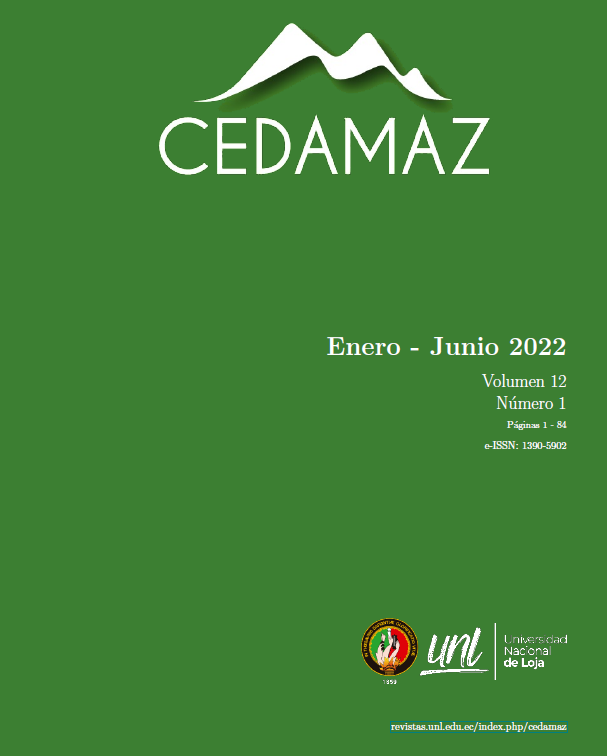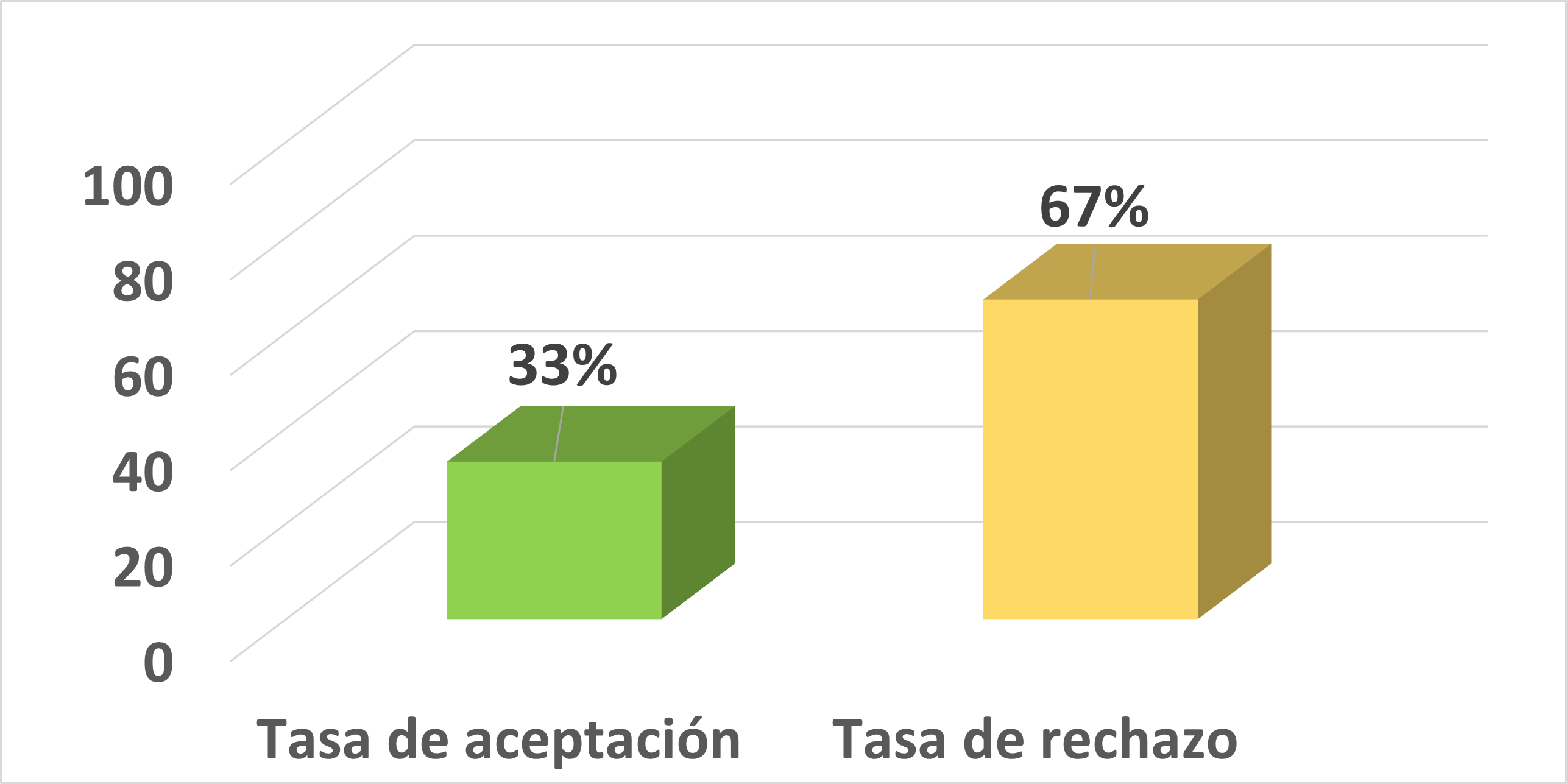Anxiety, stress and depression in medical students prior to admission to the rotating internship
DOI:
https://doi.org/10.54753/cedamaz.v12i1.1262Keywords:
Anxiety, Stress, Depression, Mental health, InternshipAbstract
Anxiety, stress and depression are important conditions experienced by students, but it has been identified that medical students have higher levels of them due to the demands posed by the career, for which it is important to know their condition prior to internship. period in which their academic activities and responsibilities are increased. For this reason, the objective of the research is to analyze the levels of anxiety, stress and depression in medical students of the National University of Loja, prior to entering the rotating internship in the city of Loja during the year 2022. For this, it has been proposed a non-experimental, descriptive study with a quantitative approach with 67 students to whom the following instruments were applied: Hamilton Anxiety Scale, SISCO Inventory of Academic Stress and Beck Depression Inventory-II (BDI-II). The results showed levels of mild anxiety in 84% of students, moderate stress in 67% of the population and minimal depression in 69%, however there are records of moderate and severe levels of anxiety, as well as severe stress level and moderate to severe depression that highlight the need for prevention and intervention programs to improve mental health and well-being.References
Arco, J. L., Fernandez, F., Heilborn, V., Lopez, S. (2005). Demographic, academic and psychological profile of students attending counseling services at the university of Granada (Spain). International Journal for the Advancement of Counselling, 27(1), 71–85.
Barraza Macías Arturo. (2007). El Inventario SISCO del Estrés Académico. Universidad Pedagógica de Durango, 7, 89–93. Beck, A. (1996). Inventario de Depresión de Beck-II. Editorial de Psyciencia.
Castro, P. D. A., Ortega, C. G. Q. (2021). Adaptación y propiedades psicométricas del inventario de depresión de beck (bdi-ii) en adolescentes ecuatorianos.
South Florida Journal of Development, 2(5), 7271–7288.
Escobar, R., Landa, B. (2021). Estrés moderado o severo asociado al ser internos de medicina o de otras carreras de la salud durante la pandemia, Perú.
González, N., Tejeda, A., Espinosa, C., Ontiveros, Z. (2020). Impacto psicológico en estudiantes universitarios mexicanos por confinamiento durante la pandemia por Covid-19. Scielo, 1(1), 1–17.
Guerrero, K., Pacheco, J., Romero, D., Tacuri, R. (2021). Análisis exploratorio de la relación entre ansiedad e inteligencia emocional de estudiantes universitarios
cuidadores y no cuidadores durante la pandemia de Coronavirus. Caso: Cuenca, Ecuador. MASKANA, 12(1), 35–40.
Gutiérrez, J., Montoya, L., Toro, B., Briñon, M., Rosas, E., Salazar, L. (2010). Depresión en estudiantes universitarios y su asociación con el estrés académico. CES Medicina, 24(1), 7–17.
Hall, J., Guyton, A. (2011). Tratado de fisiologia medica. Hamilton, M. (1959). Escala de Ansiedad de Hamilton. Andalucía: Servicio Andaluz de Salud.
Kumar, B., Shah, M. A. A., Kumari, R., Kumar, A., Kumar, J., Tahir, A. (2019). Depression, Anxiety, and Stress Among Final-year Medical Students. Cureus, 11(3).
Lemos, M., Henao, M., López, D. (2018). Estrés y Salud Mental en Estudiantes de Medicina: Relación con Afrontamiento y Actividades Extracurriculares. IMedPub Journals, 14(2:3).
Lobos, M., Gutiérrez, J. (2020). Adaptación psicométrica de la escala de ansiedad y depresión de Goldberg en una muestra salvadoreña. Entorno, 70, 87–98.
Obregón, B., Montalván, J., Segama, E., Dámaso, B., Panduro, V., Arteaga, K. (2022). Factores asociados a la depresión en estudiantes de medicina de una universidad peruana.
Ochoa, L., Gulias, R., Ruíz, E., Sánchez, H., Parodí, J. (2021). The role of GABA neurotransmitter in the human central nervous system, physiology, and pathophysiology. Revista Mexicana de Neurociencia, 22(2).
Román, F., Vinet, E., Alarcón, A. (2014). Escalas de Depresión, Ansiedad y Estrés (DASS-21): Adaptación y propiedades psicométricas en estudiantes secundarios de temuco.
Sanz, J., Gutiérrez, S., Gesteira, C., Paz García-Vera, M. (2014). Criterios y baremos para interpretar el “inventario de depresión de beck-ii” (bdi-ii). In Behavioral Psychology / Psicología Conductual (Vol. 22).
Sierra, J. C., Ortega, V., Zubeidat, I. (2003). Ansiedad, angustia y estrés: tres conceptos a diferenciar. Silva, M., López, J., Meza, M. (2020). Estres académico en estudiantes universitarios. Investigación y Ciencia, 28(79), 75–83.
Trunce, S., Villarroel, G., Arntz, J., Werner, K. (2020). Niveles de depresión, ansiedad, estrés y su relación con el rendimiento académico en estudiantes universitarios. Investigación En Educación Médica, 36, 8–16.
Vilchez, J., Quiñones, D., Failoc, V., Acevedo, T., Larico, C., Mucching, S., Torres, J., Aquino, T., Córdova, J., Huerta, A., Espinoza, J., Palacios, L., Díaz, C. (2016). Salud mental y calidad de sueño en estudiantes de ocho facultades de medicina humana del Perú. Neuro-Psiquiat, 54(4), 272–281.
Published
How to Cite
Issue
Section
License
Copyright (c) 2022 CEDAMAZ

This work is licensed under a Creative Commons Attribution-NonCommercial-NoDerivatives 4.0 International License.
Those authors who have publications with this journal, accept the following terms:
- After the scientific article is accepted for publication, the author agrees to transfer the rights of the first publication to the CEDAMAZ Journal, but the authors retain the copyright. The total or partial reproduction of the published texts is allowed as long as it is not for profit. When the total or partial reproduction of scientific articles accepted and published in the CEDAMAZ Journal is carried out, the complete source and the electronic address of the publication must be cited.
- Scientific articles accepted and published in the CEDAMAZ journal may be deposited by the authors in their entirety in any repository without commercial purposes.
- Authors should not distribute accepted scientific articles that have not yet been officially published by CEDAMAZ. Failure to comply with this rule will result in the rejection of the scientific article.
- The publication of your work will be simultaneously subject to the Attribution-NonCommercial-NoDerivatives 4.0 International (CC BY-NC-ND 4.0)









